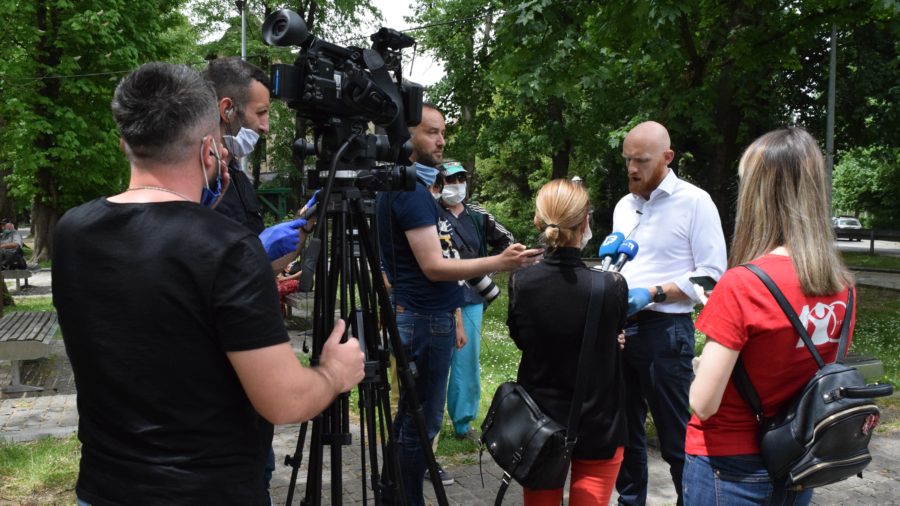Of the many freedoms that make up a democratic and fair society, the importance of freedom of media is one of the most often overlooked. World Press Freedom Day is a chance to remind ourselves of the crucial work being done by independent journalists, in Bosnia and Herzegovina, and all over the world, and to show them our appreciation.
A free media is a vital pillar of a free society. It can protect citizens and root out abuse of power. Countries with the freest media, where transparency shines like a spotlight on wrongdoing, have the least corruption. Where journalists and media organisations are free to do their work safely, societies are more prosperous and more resilient. The free exchange of views and information that results allows communities to identify and pursue opportunities and to recognise problems that must be addressed.
Very often, this is not easy. We should all pay tribute to the part played by journalists and media workers in BiH during the COVID 19 pandemic. Many have been reporting from the front lines of the health crisis, and put their own lives at risks. Like so many other parts of the economy, we have also see increased financial pressure on media outlets.
But just as troubling to the UK has been seeing the growing ways in which journalists are pressurised, and intimidated, all around the world. The pattern and techniques are increasingly familiar, and evident here in BiH: cyber-attacks on media outlets, journalists being detained and verbally attacked on assignments, threats and pressure to those investigating corruption cases, and personal attacks based on ethnicity or other personal details.
There is a particular way in which female journalists are targeted, in the same way that female politicians and others women in public life are often singled out, with additional abuse, threats, or references to their personal lives. As in those other areas, this is a deliberate and consistent attempt to sideline their views and to reduce their willingness to take a leading role.
Media freedom is a priority for the UK, and like all of my colleagues around the world I try to tackle those abuses, to stand with victims, and to continue to champion the role of independent journalists. In this I am often joined by others who share these values, including the OSCE, Canada, US, Sweden and EU. All of us who care about media freedom should raise our voices.
The global Media Freedom Campaign started three years ago is an expression of this commitment, joined by a Media Freedom Coalition of counties defending the free press. The UK is consistently among the top five donors to the media sector around the world. It’s important to provide practical support to.
Here in BiH, the UK is supporting a wide-reaching Media For All programme, delivered by the British Council, to help independent media outlets in becoming more financially sustainable, and engaging in new ways with their audiences. It’s also supporting young journalists as they establish themselves, and providing a great range of training opportunities. We have also been investing in media literacy, and are a major donor to the European Endowment for Democracy, which has offered vital support to all kinds of grass roots organisations, including in the media space.
World Media Freedom Day is a reminder of the essential work being done by independent, professional journalisms. We all benefit from their determination, and the bravery. They help us to have a voice, to know what is truly happening, and to hold those in power to account. In return, we owe them our support and our thanks.

